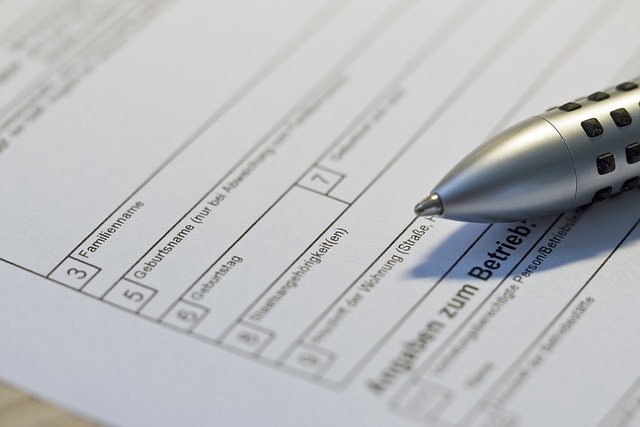Starting a small business is exciting, but one of the biggest challenges is finding the money to get started. You’re not alone if you’re wondering how to get a loan to start a small business. Many aspiring entrepreneurs struggle to secure the funds they need. But with the right approach, it’s possible! Here’s a complete guide to help you understand and navigate how to get a loan to start a small business, even if you’re new to the world of secured business financing.
Why Consider a Business Loan for Your Small Business?
Getting a loan can be one of the fastest ways to make your small business owner’s dreams come true. When personal funds aren’t enough, a business loan provides the extra push to help cover startup costs, equipment, or even day-to-day expenses. But which type of loan is best for you?

Types of Loans Available for Small Businesses
There are several options, so let’s break them down:
Startup Business Loan:
Specifically for new businesses, these loans offer funds for business purposes like buying inventory or covering other initial expenses.
SBA Loans (Small Business Administration):
These loans are government-backed, making them less risky for lenders and ideal for new businesses.
Term Loans:
A popular choice, these loans are provided by banks and have fixed interest rates and monthly payments over a set period.
Personal Loans for Business:
These can be used for business funding but are based on your personal credit history.
Business Lines of Credit:
You can draw on flexible funds as needed, similar to a credit card.
Equipment Financing:
This covers the purchase of machinery or equipment needed to start or expand a business.
Related: How to Register a Money Lending Business: A Complete Guide
Startup business loans vs. traditional business loans
With a traditional small-business loan, a good personal and business credit history can be obtained, along with strong annual earnings and debt-to-income ratios. Although your startup loan will probably have similar requirements, the requirements are usually less severe. Fora Financial said it took an “important-picture” approach in placing business growth over credit rating potential. Look into lending providers that lend to new businesses or those with poor credit.
Term loans
A term loan may also be given to established businesses with good economic records. These loan options are available in specific amounts or are fixed or floating rates throughout the specified repayment period. A loan is often used for businesses to buy property or equipment and can require a larger down payment, reducing the company’s repayment amount.

Personal Loans for Business
Startup entrepreneurs whose loans cannot be repaid have a better chance of getting personal loans. In addition to being less stringent in obtaining business lending, the application requirements for personal loans are generally weaker. And while loans could be higher than those offered by specialized banks, qualified applicants may get lower APRs on personal loans than business loans—3% on most highly secured applicants. These traits give people a great way to finance a startup without any financial plans.
Write a business plan
Many lenders will look at a business proposal to determine your ability to repay it and the risks involved. Writing business plans to determine who gets the money to lend right now is very useful. Make an effective, professional business plan. You must also provide some information about your company to a lender. It is a good opportunity to explain clearly why you provide services to needy people.
How to qualify for a startup business loan
Many banks are reluctant to partner with startup and start-up companies because the business hasn’t established a solid company history, and the debt isn’t repayable. If your business has less than 2 years, you may have the ability to get your own money back. Here are a couple of things to consider in the application process for funding startups:
Business Credit Cards
Businesses can use business credit cards to get the financial assistance they need. The funds can be utilized for many purposes, from buying furniture and office furniture to large purchases like machinery—and application procedures are simpler than loans aimed at businesses. Since lending decisions are determined primarily through personal credit ratings, obtaining business cards and loans is usually more straightforward. APR ranges from 13% to 25%, and some cards offer low interest rates that allow businesses to pay interest on purchases up to two years.

Related: What Do You Need for a Small Business Loan? Essential Steps for Success
Step-by-Step Guide to Getting a Loan for Your Small Business
Ready to get started? Follow these steps to make the process easier.
1. Check Your Credit Score
The first thing lenders look at is your credit score, which will determine whether you’re a low-risk or high-risk borrower. For most business loans, a good credit score (usually above 650) is ideal. If your personal credit score already is low, consider building it up before applying.
2. Decide How Much Funding You Need
Knowing exactly how many business loans and how much funding you need can save you from borrowing too much or too little. Use a business budget to calculate your expenses and set a clear funding goal.
3. Create a Detailed Business Plan
A well-detailed business plan shows lenders that you’re serious and have a clear vision for your and how to get a loan to start small business. Your business plan should include:
- Financial projections
- Startup costs
- Revenue expectations
- Market research
4. Compare Different Loan Options
Different personal loan lenders offer different rates, terms, and fees. Look for lenders who specialize in small business loans and compare their offers. Some options to explore include:
- Traditional banks
- Online lenders
- Credit unions
5. Gather the Necessary Documentation
Lenders will need documents to assess your loan application. Commonly requested documents include:
- Bank statements
- Tax returns
- Financial statements
- A copy of your business plan
6. Submit Your Business Loan Application
Once you have all your documents ready, it’s time to apply! Submit your business loan application to your chosen lender. Be prepared for questions about your business plan, how you plan to use the loan amount, and more.
Related: 7 Best Business Financing Brokers for 2024
Types of Lenders for Small Business Loans
You have a variety of lenders business credit card to choose from, each with different pros and cons:
Traditional Banks: Offer secured and unsecured loans with competitive interest rates but often have strict requirements.
Online Lenders: They offer faster funding and flexible criteria, making them popular for startups.
Credit Unions: Known for lower fees and better customer service, credit unions are a great choice for many small businesses.
SBA Loan Providers: SBA loans offer low interest rates, but the application process can take longer due to government requirements.
What Do I Need for a Startup Business Loan?
The lenders who offer startup business loans can ask you for many kinds of documents. Let’s say the lenders are looking into whether you could repay the loan. If your application is based on an old business, some requirements for new business lending will still be needed.
Startup business loans vs. traditional business loans
With a traditional small-business loan, a good personal and business credit history can be obtained, along with strong annual earnings and debt-to-income ratios. Although your startup loan will probably have similar requirements, the requirements are usually less severe. Fora Financial said it took an “important-picture” approach in placing business growth over credit rating and annual revenue potential. Look into lending providers that lend to new businesses or those with poor credit.
Key Factors Lenders Consider
Lenders consider several factors to determine if you qualify for a loan:
- Credit Score and History: A solid credit history and score increase your chances.
- Business Revenue: Established businesses need proof of consistent revenue.
- Business Plan: Your business plan can make or break your application.
- Collateral: Some loans require collateral to secure the loan amount.
The Importance of a Good Credit Score for Business Loans
Your credit score is critical in the business loan application process. A strong credit score not only improves your business line chances of approval but also qualifies you for better terms and lower interest rates. Many lenders have a minimum credit score requirement, typically around 600, though SBA loans may be more flexible.
Alternatives to Traditional Business Loans
If a traditional business loan isn’t an option, there are alternatives:
- Personal Savings: Many business owners tap into personal savings.
- Personal Loan: With good personal credit, a personal loan can be used for business needs.
- Credit Cards: Business credit cards help cover smaller expenses.
- Crowdfunding: Platforms like Kickstarter or GoFundMe can help raise funds.
- Angel Investors and Venture Capitalists: Ideal for businesses with high growth potential.
Understanding Interest Rates and Terms
Business loans come with interest rates and repayment terms that vary by lender. Look for competitive interest rates that fit your business’s budget. Keep in mind:
- Interest Rates: Rates vary based on your credit score and the loan type.
- Monthly Payments: Ensure the monthly payments are affordable for your business.
Secured vs. Unsecured Business Loans
Loans are either secured or unsecured:
- Secured Loans: Require collateral like equipment or property.
- Unsecured Loans: Do not require collateral but often have higher interest rates.
How to Improve Your Chances of Loan Approval
To increase your chances:
- Improve Your Credit Score: Pay off existing debts and avoid late payments.
- Organize Financial Documents: Have all necessary documents ready.
- Apply to Multiple Lenders: Many lenders increase your chances of approval.

The Application Process for a Business Loan
The application process can vary by lender. Typically, you’ll need to:
- Choose a Lender
- Complete the Application Form
- Submit Required Documents
- Await Approval and Funding
Pros and Cons of Business Loans for Startups
Pros:
- Quick access to funding
- Helps build business credit
- Flexible loan amounts and terms
Cons:
- May require a good credit score
- Some loans require collateral
- Interest payments can add up over time
Starting a business is exciting, but funding is often the biggest hurdle. Knowing how to get a loan to start a small business can make a world of difference in personal finances. By understanding your options, preparing a strong application, and exploring alternative funding sources, you can secure the funds to turn your small business dream into reality.
What to do if you’re rejected for a startup business loan
Make an inquiry with an investor to find out why you did not qualify for your loan and why your business did not qualify. There are several reasons for the issue: conflicting data on applications or credit. In both cases, you know what is required when applying for an interview. If your credit score improves you may apply for a loan again after proving your skills.

Frequently Asked Questions
What is the easiest way to get a small business loan?
Online lenders and SBA microloans are often the easiest to qualify for due to business credit scores and their flexible requirements.
Do I need a business plan to get a startup loan?
Yes, a detailed business plan is essential for both business financing and securing most types of business loans.
How much money can I borrow to start a small business?
It varies by lender, but many financial institutions offer loan amounts ranging from $5,000 to $500,000 for startups.
Can I get a loan with bad credit?
Yes, but options may be limited, and interest rates may be higher. Consider secured or SBA loans as alternatives.
How long does it take to get a business loan?
It depends on the lender; online lenders may approve in days, while traditional lenders, banks and SBA loans can take weeks.
Can I borrow money to start a business?
It is also known for helping businesses obtain loans from small business banks and other organizations. Some loan packages from the SBA offer small business owners more assistance and technical support in terms of flexible terms. This includes 7b) loan guarantee program which has become the largest loan guarantee program in America.
What credit score do I need to get a small business loan?
The maximum credit score for a business loan varies depending on lender or loan type. The traditional banking system generally requires higher credit scores (780+), while alternative banks accept low scores (590 – 690). 14th October 2024
What makes you eligible for a small business loan?
Be smaller than the requirements of the SBA. Not an ineligible company. Not able to receive the credit requested business term loans at reasonable rates from non-federal government sources. Have good creditworthiness and demonstrate repayment capacity for the loans. August 21, 2024.


 Read More
Read More 





One Response